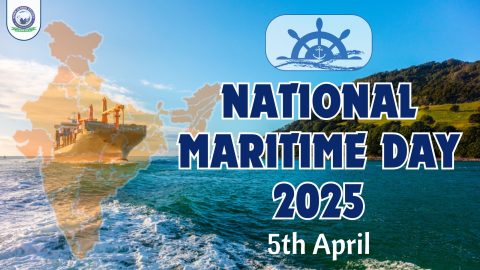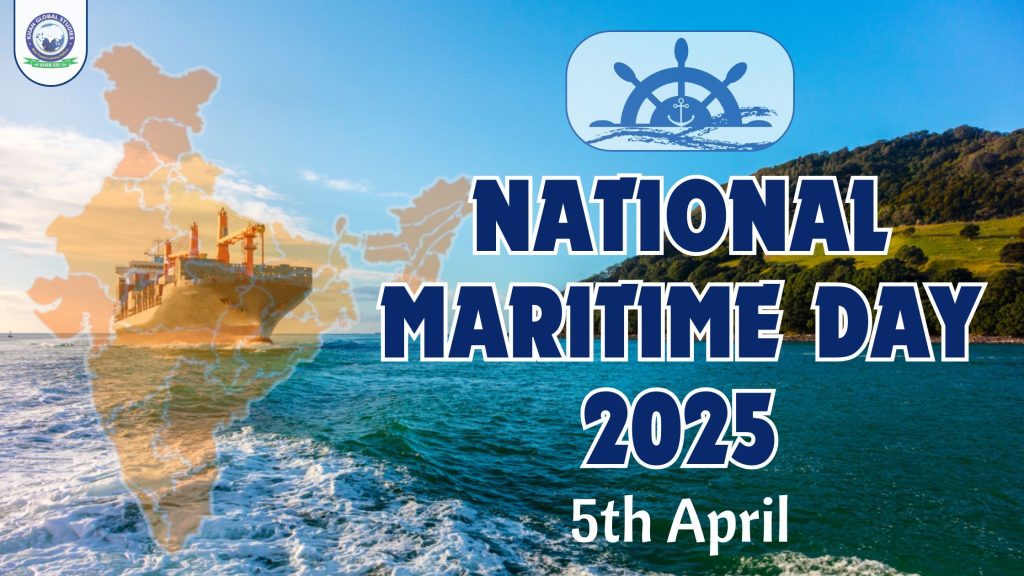National Maritime Day is celebrated in India every year on April 5th. The day aims to raise awareness about maritime trade, shipping, and maritime security. It also honors India’s rich maritime history and the achievements of the shipping industry.
History of National Maritime Day
India first observed National Maritime Day on April 5, 1964. The significance of this date lies in the historic voyage of India’s first indigenous ship, SS Loyalty, which sailed from Mumbai to London in 1919. This marked a major milestone in India’s maritime industry, breaking the British monopoly on sea trade.
India has had a strong maritime tradition since ancient times. Evidence from the Indus Valley Civilization suggests that Indian traders have been using sea routes for commerce for thousands of years. However, the journey of SS Loyalty, operated by Scindia Steam Navigation Company Ltd., was a turning point in modern Indian shipping history.
Significance of National Maritime Day
- This day honors India’s maritime strength and trade heritage.
- India has a 7,500 km long coastline, which plays a crucial role in its economy and global trade.
- It raises awareness about the importance of the shipping industry and maritime security.
- The day promotes sustainable shipping and the protection of marine ecosystems.
Importance of the Maritime Industry in India
- Maritime trade is a key pillar of India’s economy.
- Around 90% of India’s international trade is carried out via sea routes.
- Major Indian ports include Mumbai, Kolkata, Chennai, Visakhapatnam, Kandla, Cochin, and Paradip.
- Shipping Corporation of India (SCI) is India’s largest shipping company.
- The Sagarmala Project focuses on port development and coastal economic growth.
How is National Maritime Day Celebrated?
- Seminars & Workshops – Experts discuss maritime trade, security, and advancements in shipping.
- Honoring maritime professionals – The Varuna Award is presented to individuals who have significantly contributed to the maritime sector.
- Public awareness campaigns – Schools and communities are educated about marine safety and environmental conservation.
- Recognition of the Indian Navy and Coast Guard – Their contributions to national security and disaster relief are acknowledged.
Maritime Trade in India: Opportunities & Challenges
- Advantages of Maritime Trade:
- Cost-effective – Sea transport is more economical compared to other modes of transport.
- Global connectivity – India is well-connected to major international markets through sea routes.
- Large-scale cargo movement – Ships can carry a massive volume of goods efficiently.
- Employment opportunities – The shipping industry provides jobs to thousands of people.
- Challenges Faced by the Maritime Sector:
- Marine pollution – Oil spills and plastic waste threaten marine life.
- Piracy risks – Some international shipping routes face threats from pirates.
- Climate change – Rising sea levels and storms impact maritime trade.
- Need for advanced technology – The industry must adopt modern navigation and safety technologies.
Maritime Security & the Role of the Indian Navy
- The Indian Navy protects India’s vast maritime borders.
- The Indian Coast Guard ensures coastal security, safeguards fishermen, and prevents marine crimes.
- Under the SAGAR (Security and Growth for All in the Region) initiative, India is strengthening maritime cooperation in the Indian Ocean region.
Key Facts About National Maritime Day
- The first National Maritime Day was observed on April 5, 1964.
- SS Loyalty was the first Indian-owned ship, which sailed from Mumbai to London on April 5, 1919.
- India has a 7,500 km long coastline and over 200 ports, including 12 major ports.
- Shipping Corporation of India (SCI) is the country’s leading shipping company.
- The Sagarmala Project promotes port development and coastal economic zones.
Conclusion
National Maritime Day highlights the importance of India’s maritime industry, trade, security, and environmental protection. It is a day to celebrate India’s maritime legacy and inspire future growth in shipping and sustainable maritime practices.
Collective efforts are essential to protect marine ecosystems, advance maritime trade, and ensure safe navigation. Strengthening India’s maritime capabilities will help the country emerge as a leading global maritime power.




